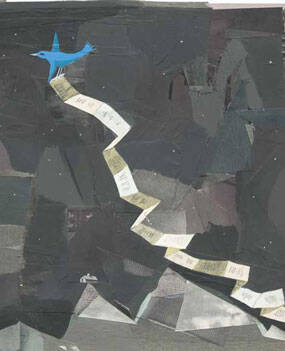Once more the Foley poetry contest has run its course. Entries came streaming in, not just from faraway places—Austria, India, Australia, Ireland, Kenya—but from American towns quite unfamiliar, such as Dripping Springs, Tex. These contemplations, memories and musings arrived as a welcome change of pace while America’s poetry editor was cribbed in a jury box for most of Lent.
A striking number of submissions came from women religious. Piety does not automatically make for fine poetry, but when artistry enhances life experience it certainly can. Rose Marie Quilter, R.S.C.J., speaks of the Incarnation as one of God’s games, specifically Hide and Seek. She writes: “One fine day, the Holy One,/ (incorrigibly scheming)/ leapt into our own clay.” Marie Vianney Bilgrien, S.S.N.D, in the rooms of Saint Ignatius in Rome, is surprised by a marker: “The bust is at the height of Ignatius of Loyola.” Five foot two herself, she finds her eyes even with his. You don’t have to be tall to be a saint! Sister Rafael Tilton, O.S.F., pictures the Radon Mines in Montana, “raining uranium,” as a basilisk portending doom to the whole county around.
William Matthews, a New York City poet recently deceased, once wrote “a short but comprehensive summary” of all the subjects for lyric poetry. It starts: “I went out into the woods today and it made me feel, you know, sort of religious.” The Foley poems that are set in the natural world hold their own gamely against this urban sarcasm. I enjoyed, for example, these opening lines of “Mother Earth,” by Christina Ward:
The soil is my flesh, The trees and plants are my hair. The rocks are my bones, My breath is the air.
In many of the poems received, what stands out may be simply a phrase or a line. Robbie Robinson writes from his confinement: “Prison is like a dream eater.” Katelynn Campbell claims, in “Books,” “If I can’t read/ I will scream” and quips, “Maybe I’ll be/ a librarian.” Jeffrey Starbuck muses, “There is a secret Wind which/ breathes us all.” Francis McGarry, in his “Litany of the Catechumens,” includes the “balding bureaucrat/ who eats laxatives for a snack.” And the Rev. Richard Rento, in “Oceans of Life,” comes up with a wonderful phrase for our restlessness: “that fluid mass of determined agitation.”
How can a poem go wrong that opens and concludes thus: “My Beautiful Old Mysterious God” (“You,” by Carol Donohue)? Another gem is in Emily Loretta Robinson’s “Encomium”: “There is so much music/ In the air of New Orleans/ You can hold up a trumpet/ And it will play itself.” A few poems proposed a humorous or distinctive list—“The Junk Drawer,” by Shelia Kinneer Pook, Michael Kubiak’s account of all that has slipped through his pockets and Sandra Murpy’s spirited survey of the vegetables alive in her garden.
Kenneth Koch, in Wishes, Lies and Dreams, his genial book about how to get children writing poetry, mentions “I wish” as the earliest and most elementary category to stimulate them. Here is an adult “I wish” by Marianne Jones of Thunder Bay, Ontario:
i wish i was floating in a painting by Chagall my hair weightless as clouds, waving my white angel feet at the trees below
The Foley poetry contest this year, for the first time in its history, has a Jesuit as the winner. His poem earned that distinction; the judges, however subject to fallibility, found it simply the best. The three runners up will appear in later issues of America.
Listen to an interview with Foley winner Michael Suarez, S.J.








